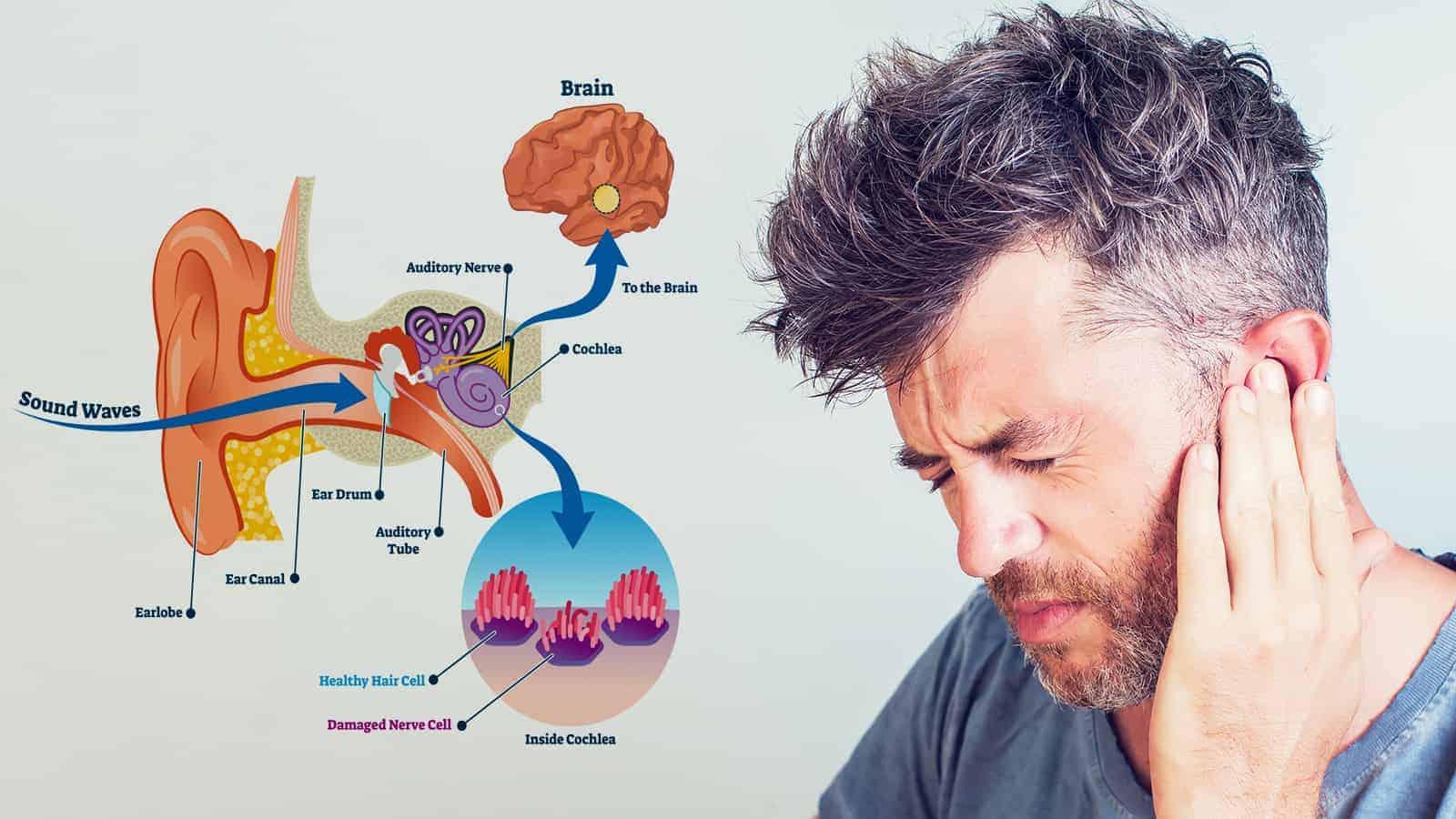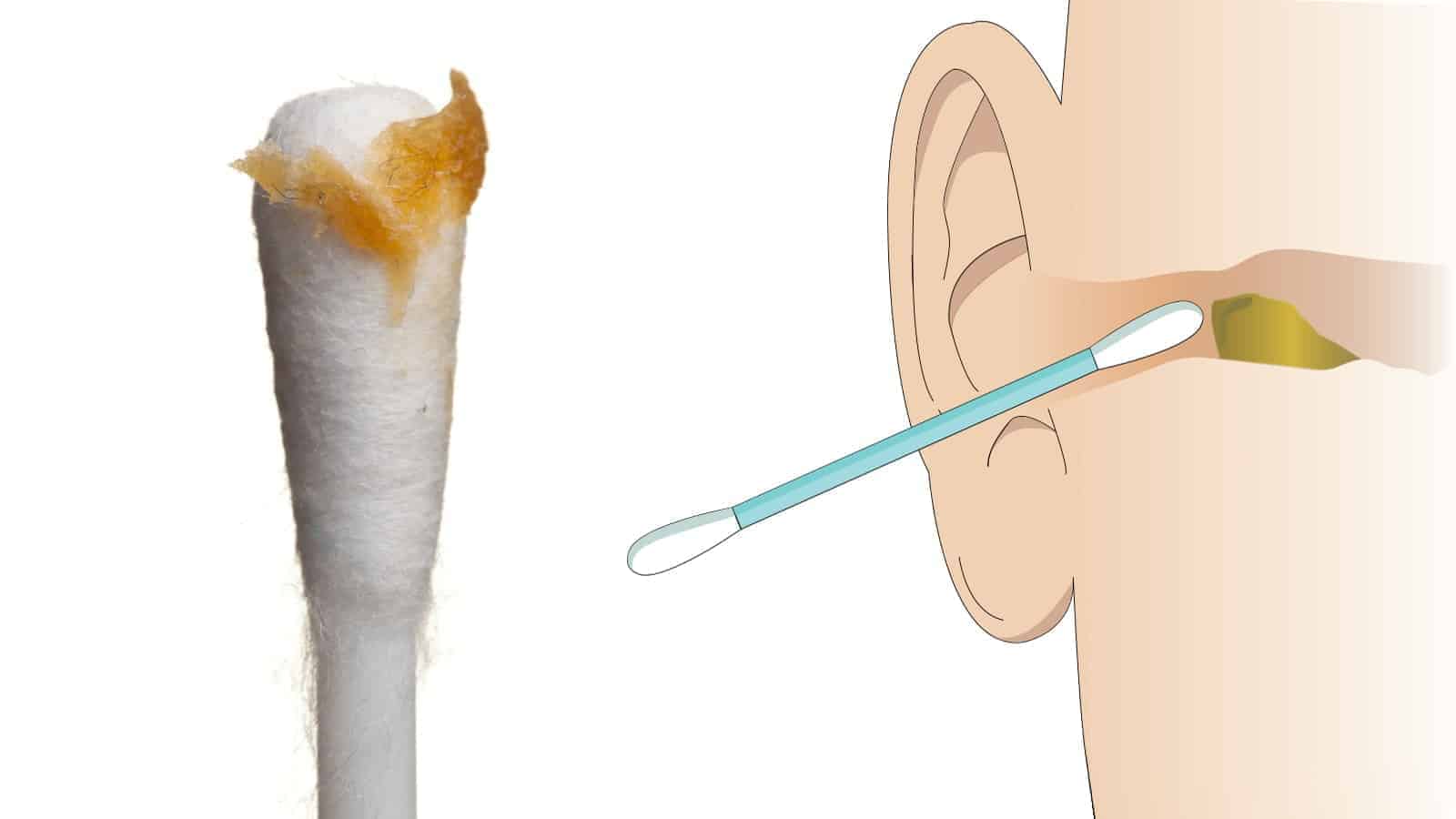Many people experience ringing in the ears, which is also known as tinnitus. Some people experience ringing only occasionally, while others experience it non-stop. Figuring out the cause of the ringing ears is key to figuring out how to fix it.
When you experience this ringing, it is because the small hairs in your inner ear have been damaged. The level of damage done will determine how long the ringing lasts. It can occur in both ears or only in one, and it can be constant or occasional.
Whether this is a common problem for you or if it’s been a one-time issue, you know how annoying it is. Not only is it annoying, but it can seriously interfere with your life if it becomes too bad. It can become hard to hold a conversation or focus on a task, resulting in many issues.
Tinnitus isn’t life-threatening, but it can have damaging effects on your life. From interfering with your life to simply annoying you constantly, it is best to figure out the cause and fix it.
Causes of Ringing in the Ears
 1. Injuries in the Head or Neck
1. Injuries in the Head or Neck
Even a little stress in your head or neck can cause tinnitus, so injury is a sure cause. This is because the head and neck connect to your ears and hearing. One way to know if this is the cause is if the ringing is only in one ear.
Some of the head or neck injuries that can cause tinnitus include being in an accident or hitting your head. Sports injuries from high-contact sports are often a cause of head injuries, too.
2. Long Exposure to Loud Noises
Being exposed to loud noise for an extended time can cause ringing in the ears. If only one instance of exposure, your hearing will likely go back to normal relatively quickly. On the other hand, if exposure to loud noise is a habit, the ringing could become permanent.
3. Otosclerosis
One cause of ringing in the ears is osteosclerosis when the middle ear’s ossicles harden.
4. Blood Pressure Issues
Anything that causes your blood pressure to vary can cause tinnitus. This could include anything from stress to hardening arteries. The blood vessels near your ear aren’t as stretchy, so abnormal blood flow can cause the annoying sound you hear.
5. Sinus and Ear Infections
If you are prone to sinus infections, ringing in the ears could indicate that you have one. This could also happen if you have had a cold because there is pressure in your sinuses then, too. Usually, the ringing will go away pretty quickly if this is the cause.
6. Built-up Earwax
Earwax obstructs the ear canal, causing swelling and irritation of your eardrum. This can cause ringing in the ears if it becomes too bad.
7. Jaw Problems
If your jaw is injured or altered in any way, it can cause your ears to ring. Whether or not this alteration or injury is permanent will often indicate how long the ringing will last.
Another jaw issue that could cause the ringing sound is temporomandibular joint (TMJ) problems. This joint is located where your jaw meets your skull. If you experience pain or a popping sensation in that area when you talk or eat, your TMJ might be a problem.
TMJ problems affect your hearing because it is close to your ear. Your middle ear and TMJ share some of the same nerves and ligaments, making it a direct link.
8. Ménière’s Syndrome
Any change in your inner ear bones can cause ringing in the ears. One of those changes is a disease called Ménière’s syndrome. This syndrome leads to episodes of vertigo (or dizzy spells), hearing loss, and ringing in the ears.
9. Growing Older
As you get older, your hearing diminishes. This can lead to a high-pitched ringing sound or buzzing. Normally, this will happen to both ears simultaneously, but it can occur in only one ear.
10. Caffeine
Your caffeine habit could be a cause of ringing in the ears. If you often drink coffee, soda, tea, or energy drinks, your blood pressure can significantly increase. As explained before, changes in your blood pressure can cause tinnitus.
When too much caffeine causes your blood pressure to increase, you may notice the ringing. Try cutting back and see if it helps. Or, think back on how much caffeine you have had when you experience the ringing sound.
11. Certain Medications
Some medications can cause you to experience a ringing sound in your ears. Plus, the higher dose you take, the more severe the ringing will be. The medications that may cause ringing include:
-antidepressants
-antibiotics
-water pills
-aspirin
-diuretics
-NSAIDs
-cancer drugs
12. Being Congested
No matter the cause of your congestion, it can cause tinnitus. The congestion can be because of allergies, ear infections, sinus infections, or a common cold. You can rest assured that if this is the cause, it will likely go away on its own.
13. Your Diet
Consuming too much sugar can cause tinnitus or make the symptoms worse. A shocking study showed that up to 92% of people with tinnitus had too much sugar, making it a common cause. This isn’t to say that you shouldn’t have sweets, but instead, limit it to an occasional treat.
Another part of your diet that could cause tinnitus is salt. If you consume too much salt, your blood pressure will skyrocket, causing ringing in your ears. Limit salt whenever you can, and avoid adding extra to your food before eating.
14. Tobacco and Alcohol
Two vices for many people, tobacco and alcohol, can cause your ears to ring. Any tobacco product that contains nicotine causes ringing because it raises your blood pressure. Plus, it causes the oxygen traveling to your ears to decrease, worsening the ringing issue.
Alcohol also causes your blood pressure to rise. The more you drink, the more your blood pressure will increase. So, if you do consume some alcohol, make sure you don’t over-indulge.
15. Stress, Anxiety, and Depression
Being stressed, anxious, or depressed can cause your ears to ring. Then, as stated before, some antidepressant medications also cause ringing in your ears. With the two of these problems both causing ringing, it can be hard to find an end to the annoying sound.
How to Fix Ringing in the Ears
Experiencing ringing in the ears is never enjoyable, and when it continues or gets worse, it becomes unbearable. Plus, it can cause fatigue, inability to concentrate, sleep problems, memory issues, and irritability. With this being the case, you must find a way to stop the tinnitus for good.
Avoid Loud Noises
Keep your headphones at a healthy volume, and turn down your speakers. When you go to loud events, consider wearing earplugs to avoid damage and ringing.
Consume a Healthy Diet
Limit sugar and salt intake to help keep blood pressure under control. Save treats for special occasions, and avoid adding table salt to your meals. Making these small diet changes will help stop the ringing.
Avoid Stress and Learn to Cope with Stress
You should avoid stress whenever possible and limit your exposure to things you know trigger it. Since you can’t completely avoid stress all the time, you must learn healthy ways to cope with stress, too. Some way to reduce stress include:
-exercise
-spending time on hobbies
-therapy
-deep breathing techniques
-meditation
-massage
Consider Hearing Aids
This option won’t work for everyone, but if you are dealing with age-related hearing loss causing tinnitus, it might. Wearing hearing aids won’t only reduce or stop the ringing sound, but you’ll be able to hear better. It is beneficial no matter which way you look at it.
Have Your Doctor Clean the Wax from Your Ears
You must have a doctor remove the earwax so that you don’t cause damage or make it worse. Doctors have special tools to use for this, making it safe and easy.
Limit Your Caffeine Intake
Consider skipping that second (or third) cup of coffee in the morning. You could also cut soda out of your diet or switch to decaf tea. Limiting caffeine will help your ringing ears immensely.
Try Acupuncture
A form of alternative medicine, acupuncture involves inserting needles into specific areas of your body. All of the areas help with different ailments and conditions, and it might even help with tinnitus.
 Final Thoughts on Causes of Ringing in the Ears + How to Fix It
Final Thoughts on Causes of Ringing in the Ears + How to Fix It
Ringing in the ears is an annoying problem to have, but, in most cases, it can be fixed. The first step is to figure out the cause of tinnitus and then learn how to fix the problem.
Once you can figure it out and fix it, you will be able to live a more joyful, concentrated life. The annoying ringing sound won’t be filling your mind anymore. Plus, if you fix the issue, you may feel better overall.



















